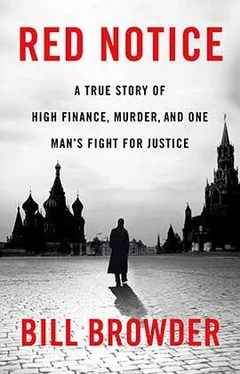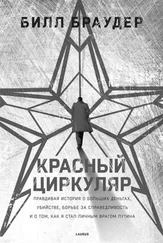«It sure did. That’s how things get done in Washington, Bill. Congratulations».
True to his word, a few days later, Lieberman and the other original cosponsors of the Magnitsky Act sent a letter to Montana senator Max Baucus, the chairman of the Senate Finance Committee. Just as Foreign Relations had to clear the way for passage of the Magnitsky Act, the Finance Committee had to O'kay the repeal of Jackson-Vanik. The letter said, «In the absence of the passage of the Magnitsky legislation, we will strongly oppose the lifting of Jackson-Vanik». Given the way the Senate operates, this letter was as good as a veto.
Senator Baucus was keen to get Jackson-Vanik repealed. Many of his constituents in Montana were cattle farmers and beef exporters. They wanted to sell their steaks and hamburgers to Russia — the world’s sixth-largest importer of US beef — without fear of being at a disadvantage.
This meant that the only way to repeal Jackson-Vanik was also to pass Magnitsky, and after some deliberation the Senate decided to combine the two bills into one. First the bill would be brought up at the Senate Foreign Relations Committee to pass Magnitsky, then it would go before the Finance Committee to repeal Jackson-Vanik, and then, at long last, it would go before the full Senate for a vote.
A famous expression goes, «The less people know about how sausages and laws are made, the better they sleep at night». Our human rights campaign made strange bedfellows with Montana beef farmers, Russian human rights activists, and Boeing airplane salesmen, but by working together it appeared as if we had the strength to overpower any remaining resistance to getting the law passed.
With the prospect of Jackson-Vanik being blocked, Kerry took his foot off the brakes. He called for a meeting of the Senate Foreign Relations Committee on June 26, 2012, with the sole purpose of approving the Magnitsky Act. I flew to Washington specifically to be there. The meeting was open to the public and scheduled to start at 2:15 p.m., and I arrived at the Capitol forty-five minutes early to get a good seat. But as I approached security, I was surprised to see more than three hundred people lined up, waiting to get in. Journalists, activists, student volunteers, staffers, Russian embassy officials — you name it, they were all there.
I got in the back of the line and a few minutes later heard someone shouting my name. I recognized a senior from Columbia University who’d volunteered on our campaign. He had one of his friends hold his spot while he came back to me and said, «Mr. Browder, please come up to the front with me».
He pulled me aside and we started walking past everybody, but then one of the Capitol policemen stopped us and said, «Hey, fella, what do you think you’re doing?»
I felt slightly embarrassed and didn’t say anything, but the student said enthusiastically, «Officer, this is the man who’s responsible for the Magnitsky Act. He needs to be at the front of the line».
«I don’t care what he’s done». The officer pointed at me. «Back of the line».
«But—"
«Back of the line!»
I told the student it was O'kay and walked to my old spot, noticing along the way a Russian embassy official I knew by sight. Judging by the smirk on his face, he enjoyed watching me get slapped down.
When I finally got to the hallway outside the committee room, I found a giant scrum of people. The room could hold only around sixty, and I realized if I didn’t get in at the beginning, then I wasn’t going to get in at all. The door was opened at 2:15 sharp by a short, stocky woman with brown hair and a booming, authoritative voice. She called for members of the press. A full third of the people surged forward, and I tried to get swept up with them. But this formidable woman, who took her job very seriously, stopped me when it was my turn and said, «Where’re your credentials?»
«Uh… I don’t have any. But I’ve been deeply involved in the Magnitsky Act and it’s important that I be in there».
She shook her head as if to say, Nice try, pal , and pointed back at the crowd.
What could I do? For the second time that day I slunk away feeling like the total outsider that I was. I stepped behind a velvet rope as the senators and their aides suddenly appeared. The crowd parted for them and cameras flashed from every corner. One of the last senators to arrive was Ben Cardin, who didn’t notice me.
But his senior aide, Fred Turner, did.
As they approached the door, I saw Fred stop to say something to the brown-haired gatekeeper. He pointed in my direction, and the woman came over and said, «Mr. Browder, I’m very sorry. We have a space for you. Please follow me».
She led me into the packed chamber, the most ornate of all the Senate committee rooms, and showed me to the last empty chair.
Senator Kerry entered through a side door and called the meeting to order. His body language made it clear that this was the last place he wanted to be. He began the meeting with a strange speech about how America is not a perfect country, and that the people in that room should be «very mindful of the need for the United States not to always be pointing fingers and lecturing and to be somewhat introspective as we think about these things».
He gave the floor to some of the other senators, all of whom made supportive comments about the bill, and when they were finished, Kerry addressed Cardin directly: «I don’t view this as a completely finished product, and I don’t want it judged as such». Kerry then carried on in his condescending Boston Brahmin voice with a lot of barely intelligible thoughts about how the Magnitsky Act could potentially compromise classified information, and that while it was «very legitimate to name and shame», he was «worried about the unintended consequences of requiring that kind of detailed reporting that implicates a broader range of intelligence equities».
Kerry’s fuzzy diplospeak made it clear that he was there only because he had to be, and that he couldn’t reconcile himself with what had to be done. Everything he said seemed to be a badly disguised attempt to postpone a vote on the bill so that it lapsed into the next Congress. If that happened, then this whole sausage-making exercise would have to restart from square one. Everything rode on this moment. Would Cardin, a first-term senator, stand up to Kerry, a twenty-seven-year veteran of the Senate and a Democratic powerhouse?
When Kerry was done droning on, all eyes turned to Cardin, who appeared to be nervous as he braced himself for what he was about to say.
But Cardin didn’t budge. He refused to revisit the bill later and called for an immediate committee vote. After five minutes of back-and-forth, Kerry had had enough and even cut Cardin off midsentence to ask, «Any further debate? Any further comment, discussion?»
The room was silent.
Kerry called for a vote. Not a single voice stood with the nays.
Kerry announced a unanimous decision and called the meeting to a close. It took all of fifteen minutes. Everyone filed out.
I was walking on air. I had spent every day of my life since November 16, 2009, working in the service of Sergei’s memory. On this day in June 2012, it felt as if there wasn’t a person in Washington — the most important city in the most powerful country in the world — who didn’t know the name Sergei Magnitsky.
38. The Malkin delegation
All the planets seemed to be lining up for a smooth passage of the Magnitsky Act. The business community was on board, the human rights community was on board, the Obama administration was on board, Republicans, Democrats, everyone. I had a hard time seeing how anything could stand in the way.
But then, on July 9, 2012, less than two weeks before the joint bill was to come before the Senate Finance Committee, the Russian government made a last-ditch effort to derail the bill. It was sending a high-level delegation to Washington to present a «parliamentary investigation into the Magnitsky case». It indicated that it wanted to establish a joint commission between the US Congress and the Russian Parliament to review the case, but like Kerry before them, its real objective was to slow down the bill so it slipped into the next Congress and died a slow death.
Читать дальше












